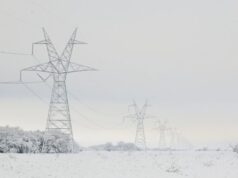Despite important agricultural advancements to feed the world in the last 60 years, a Cornell-led study shows that global farming productivity is 21% lower than it could have been without climate change. This is the equivalent of losing about seven years of farm productivity increases since the 1960s.
The future potential impacts of climate change on global crop production has been quantified in many scientific reports, but the historic influence of anthropogenic climate change on the agricultural sector had yet to be modeled.
Now, a new study provides these insights: “Anthropogenic Climate Change Has Slowed Global Agricultural Productivity Growth,” published in Nature Climate Change, was led by economist Ariel Ortiz-Bobea, associate professor in the Charles H. Dyson School of Applied Economics and Management at Cornell.
“We find that climate change has basically wiped out about seven years of improvements in agricultural productivity over the past 60 years,” Ortiz-Bobea said. “It is equivalent to pressing the pause button on productivity growth back in 2013 and experiencing no improvements since then. Anthropogenic climate change is already slowing us down.”
The scientists and economists developed an all-encompassing econometric model linking year-to-year changes in weather and productivity measures with output from the latest climate models over six decades to quantify the effect of recent human-caused climate change on what economists call “total factor productivity,” a measure capturing overall productivity of the agricultural sector.
Find your dream job in the space industry. Check our Space Job Board »
Ortiz-Bobea said they considered more than 200 systematic variations of the econometric model, and the results remained largely consistent. “When we zoom into different parts of the world, we find that the historical impacts of climate change have been larger in areas already warmer, including parts of Africa, Latin America and Asia,” he said.
Humans have already altered the climate system, Ortiz-Bobea said, as climate science indicates the globe is about 1 degree Celsius warmer than without atmospheric greenhouse gases.
“Most people perceive climate change as a distant problem,” Ortiz-Bobea said. “But this is something that is already having an effect. We have to address climate change now so that we can avoid further damage for future generations.”
Cornell funding was provided by USDA National Institute of Food and Agriculture and the National Science Foundation.
Provided by: University of Maryland
More information: Ariel Ortiz-Bobea et al. Anthropogenic climate change has slowed global agricultural productivity growth, Nature Climate Change (2021). DOI: 10.1038/s41558-021-01000-1
Image: Harvesting.
Credit: Edwin Remsberg, University of Maryland











